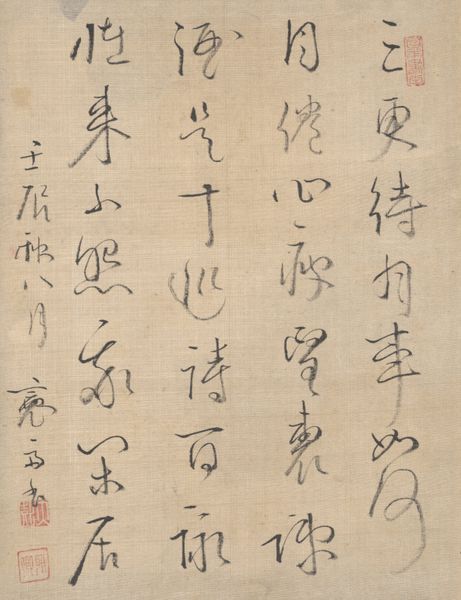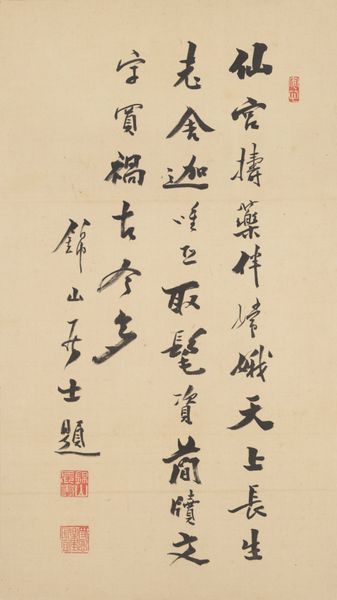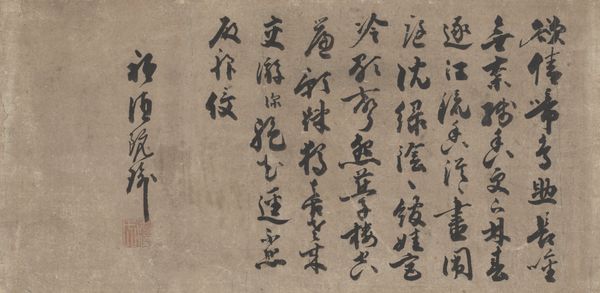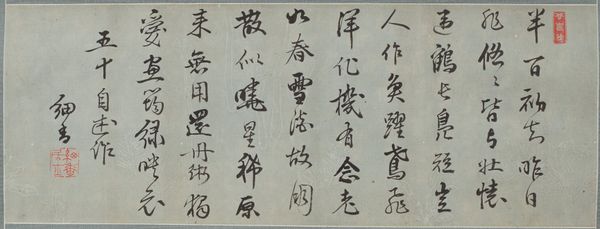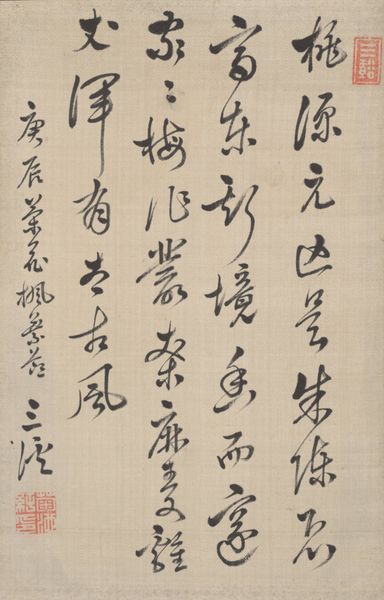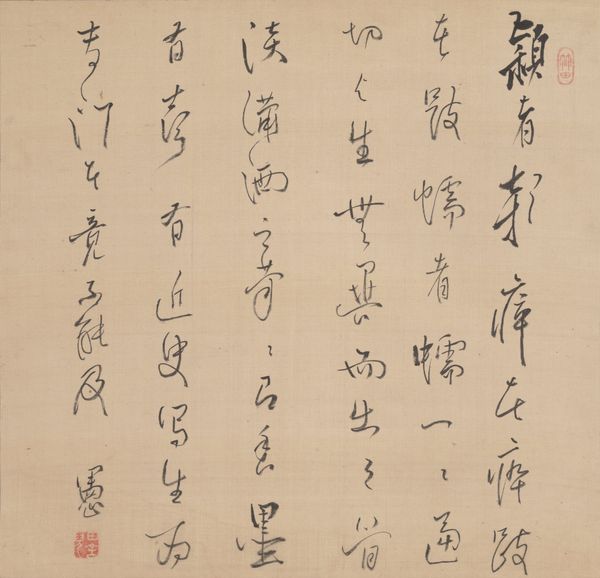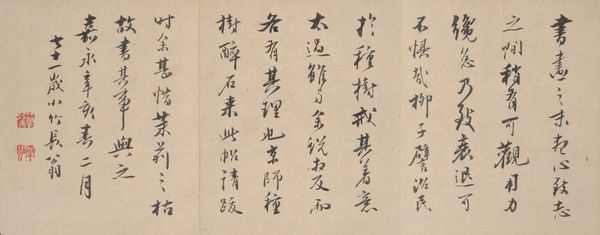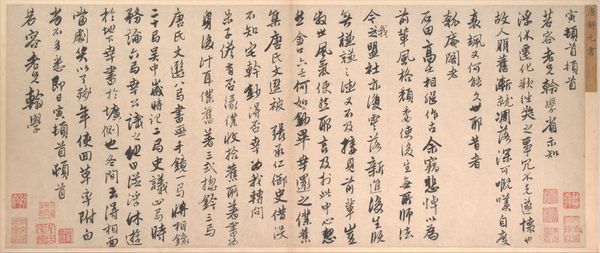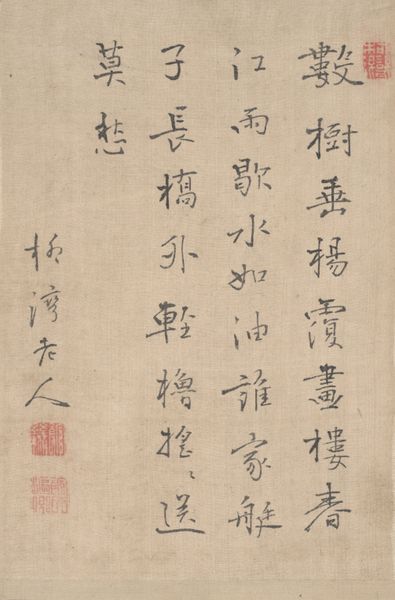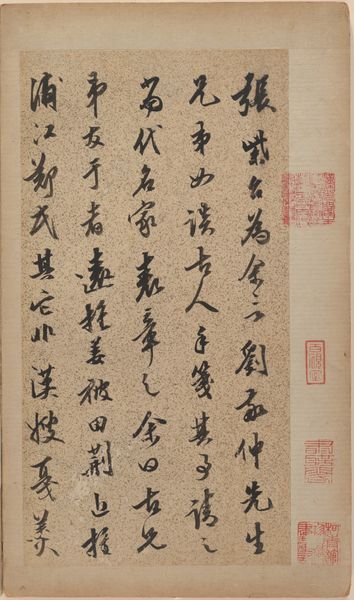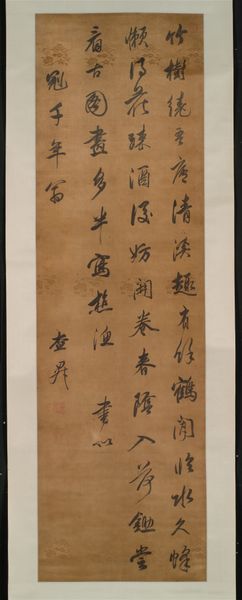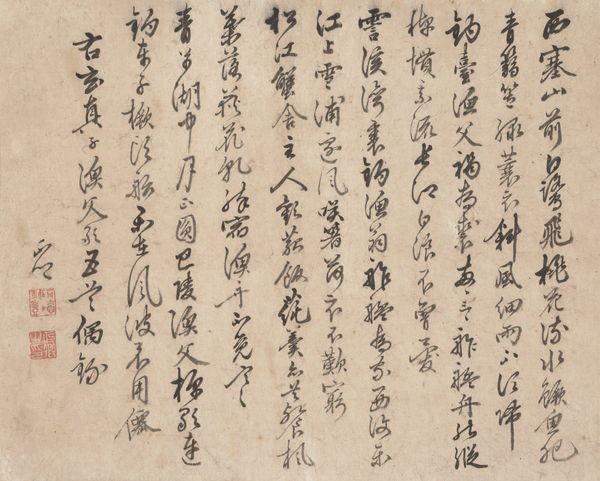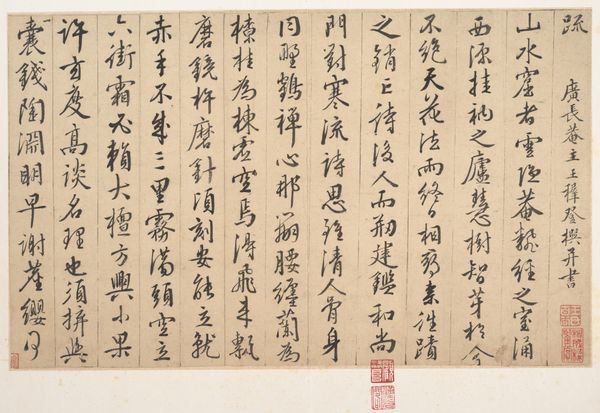
drawing, print, textile, paper, ink-on-paper, hanging-scroll, ink
#
drawing
# print
#
asian-art
#
hand lettering
#
textile
#
japan
#
paper
#
ink-on-paper
#
hanging-scroll
#
ink
#
calligraphy
Dimensions: 7 13/16 × 5 11/16 in. (19.84 × 14.45 cm) (image)35 3/8 × 13 1/4 in. (89.85 × 33.66 cm) (mount, without roller)
Copyright: Public Domain
Curator: Well, hello there! Editor: We're looking at a hanging scroll titled "Two Poems by Yan Xiufu" believed to be from the late 18th or early 19th century, by Kameda Bōsai. It's ink on paper. It's interesting. The verticality really gives it this… I don’t know, austere, classical feel. What do you make of it? Curator: Austere… yes! Like standing before a scholar’s quiet meditation. To me, it's the visual equivalent of holding my breath in a silent temple. See how the ink dances – almost playful, yet deeply rooted in tradition. It reminds me of those misty mountain landscapes, don't you think? As though you can almost smell the pine needles and hear the whisper of wind. Do you find that calligraphic style soothing or more…enigmatic? Editor: I see what you mean about the misty mountains. It’s like the brushstrokes themselves create the atmosphere. But "enigmatic" is definitely the word I'd use! I can't read Chinese. What do the poems add? Curator: Ah, so glad you asked! Knowing the content deepens the experience, transforming it into something incredibly special. Without delving into the specifics too much here – it hints at a delicate blend of nature, introspection, and classical allusion. But even *without* knowing, the brushstrokes themselves communicate that delicate blend. Do you feel the underlying current of melancholy? That *wabi-sabi* acceptance of imperfection? Editor: I think so…now that you mention it. It is beautiful to see it all tied together in one, you know? Curator: Absolutely, this piece whispers rather than shouts. I guess for me it's also this wonderful conversation between artistic tradition and individual spirit, you know? Editor: That makes a lot of sense. I never thought about that when looking at Asian Art before! Curator: It’s layers upon layers…just like life, eh?
Comments
minneapolisinstituteofart about 2 years ago
⋮
This text recites the two poems by the Chinese Tang Dynasty poet Yan Xiufu 嚴休復 (died 835/840) that are notated in Complete Tang Poems (Quan Tangshi), commissioned by Emperor Kangxi in 1705, and the largest compilation of poetry from that period. 終日齋心禱玉宸 魂消目斷未 / 逢真 不如一樹瓊瑤蕊 笑對藏 / 花洞裏人 香車潛下玉龜山 塵 / 世何由覩蕣顏 惟有多情枝 / 上雪 好風吹綴綠雲鬟My heart, after day-long fasts, has prayed to the Jade Palace, / Yet soul has melted, eyesight failed without Encountering the True! / Much better is this entire tree of jade and jasper stamens, / Smiling as they face this visitor to the Cave of Hidden Flowers!The winged chariot once descended to the Mount of the Jade Tortoise: / In this dusty world, whenever again will we view the visage of Shun' / There are only these snowflakes, full of feeling on the branch, / Blown here by a lovely breeze to ornament green-cloud chignons!(Trans. Stephen Addiss)
Join the conversation
Join millions of artists and users on Artera today and experience the ultimate creative platform.
